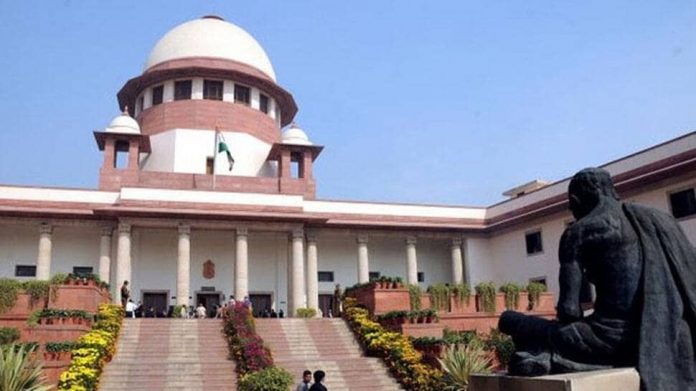A PIL has been filed in the Supreme Court seeking directions to declare Section 2(f) of the National Commission for Minority Education Institution Act 2004, as arbitrary, irrational and against the Articles 14, 15, 21, 29 and 30 of the Constitution.
The petitioner Advocate Ashwini Kumar Upadhyay and BJP spokesperson submitted that the cause of action accrued on 06.01.2005, when the Act came into effect and by using unbridled power under S. 2(f), Centre arbitrarily notified 5 communities viz. Muslims, Christians, Sikhs, Buddhists and Parsee as minority at national level against the spirit of TMA Pai ruling. Cause of action continues till date because followers of Judaism, Bahaism & Hinduism; who are real minorities in Laddakh, Mizoram, Lakshdweep, Kashmir, Nagaland, Meghalaya, Arunachal Pradesh, Punjab, Manipur, cannot establish & administer educational institutions of their choice because of non-identification of ‘minority’ at State level, thus jeopardizing their basic rights guaranteed under Article 29-30. Their right under Articles 29-30 is being siphoned off illegally to the majority community in the State because Centre has not notified them ‘minority’ under NCMEI Act.
He further submitted, “Amongst the questions which were formulated for answer by the eleven judges Bench in TMA Pai Case [2002 (8) SCC 481], the most important was: “What is the meaning and content of the expression ‘minority’ in Article 30 of the Constitution of India?“ The answer in the opinion of majority in the Bench of eleven judges, speaking through Justice Kirpal, CJ (as he then was) is quoted hereinafter: “Linguistic and religious minorities are covered by the expression ‘minority’ under Article 30 of the Constitution. Since reorganization of the States has been on linguistic lines, therefore, for the purpose of determining the minority, the unit will be State and not whole India. Thus, religious and linguistic minorities, who have been put on a par in Article 30, have to be considered state wise”.
“The Judgment in the TMA Pai Case is law of the land; hence, the identification of religious and linguistic ‘minority’ has to be done on State only and Centre has to exercise its power under NCM Act & NCMEI Act, not merely on the advice and recommendation of the National Commission for Minorities but also on consideration of social cultural and religious conditions of the community in each State. Religious and linguistic minorities for the purposes of Articles 29-30 must be determined State-wise countenancing numeric proportions of various groups and communities in each State. However, despite the above unequivocal position of law, the Centre has completely failed to apply the above principle evenly by excluding not only Hindus but also the followers of Bahaism and Judaism from the purview of ‘minority’ status under Section 2(c) of the NCM Act and Section 2(f) of the NCMEI Act, said the petitioner.
The petitioner has thus prayed for the following directions;
a) direct and declare that Section 2(f) of the National Commission for Minority Education Institution Act 2004, is arbitrary, irrational and offends Articles 14, 15, 21, 29 and 30 of the Constitution hence void;
b) in alternative, direct and declare that followers of Judaism, Bahaism & Hinduism, who are minorities in Laddakh, Mizoram, Lakshdweep, Kashmir, Nagaland, Meghalaya, Arunachal Pradesh, Punjab and Manipur, can establish & administer educational institutions of their choice in spirit of the TMA Pai Ruling[(2002)8 SCC 483, para 75-76]
c) in the alternative, direct the respondents to lay down guidelines for identification of minority at State level, in order to ensure that only those religious & linguistic groups, which are socially economically politically non-dominant and numerically inferior, can establish and administer educational institutions of their choice;
Read Also: Delhi HC issues notice on plea challenging UPSC prelims examination notice
Read the full PIL here;
Section-2F-NCME-Act-India Legal Bureau


